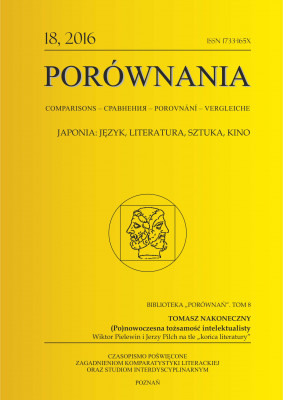Translation/interpretation in the Japanese-Polish context. Some remarks
Since loss of information is inevitable during the communication process, translation/interpretation may be viewed as a gradable phenomenon. Furthermore, a translator/interpreter is an optional element of the communication model, due to the fact that a longer communication cycle inevitably generates more noise. The translator/interpreter’s presence on the communication stage should thus be related to the transparent character of their activity, i.e. to minimise the obstacles and maximize the benefits they provide for the communication processes. This is especially valid in cases of interpretation, when an interpreter usually encounters a particular situation to cope with, with practically no active influence on its circumstances. This paper addresses several issues related to the cross-cultural communication in the context of its Polish-Japanese variant. It raises both technical problems related to translation/interpretation and xenophobic issues inevitably present on the cross-cultural communication stage. Its last part covers the classification of potential translation/interpretation problems postulated by this author. Many of them may be experienced only by the translator/interpreter, whose activity is performed at the boundary of heterogeneous communication environments. The awareness of translation/interpretation issues is thus pointed out as one of the basic constituents of the educational background for all translation/interpretation students.
| Article Title | Type | Size |
|---|---|---|
| 02 Arkadiusz Jablonski | [pdf] | [242 KB] |
